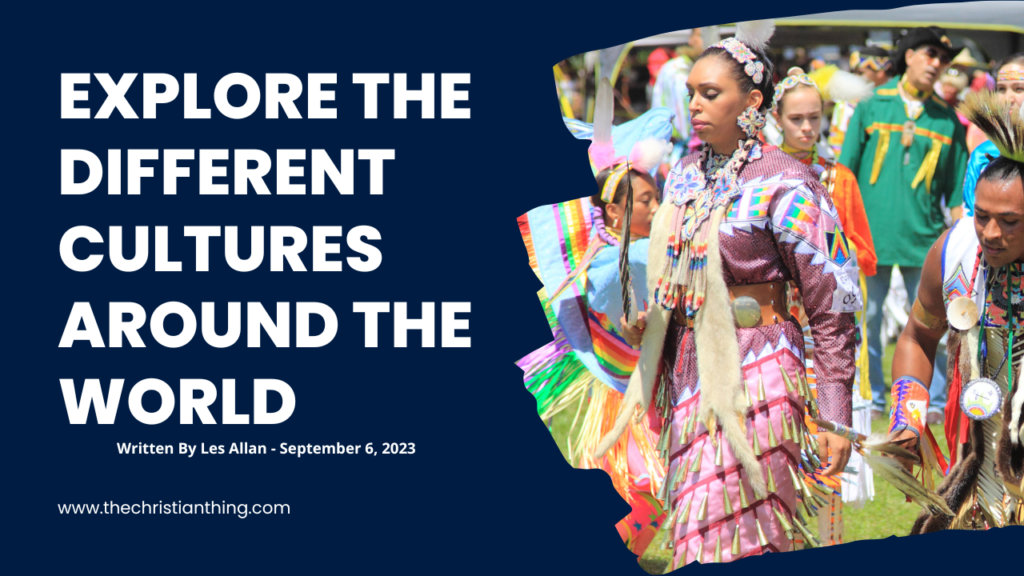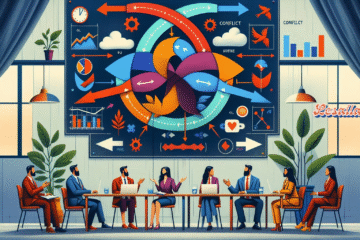Written By Les Allan – September 6, 2023

Society today is full of cultures and subcultures that shape our identities, values, and beliefs. But what are they, and what should we believe? In this blog post, I will explore the definitions and examples of culture and subculture, and discuss some of the challenges and opportunities they present for us as individuals and as a society.
Culture is a broad term that refers to the shared patterns of behavior, beliefs, symbols, norms, and values that distinguish one group of people from another. Culture is learned, transmitted, and modified over time, and it influences how we think, feel, and act in different situations. Culture can be seen at different levels, such as national, regional, ethnic, religious, organizational, or professional.
Subculture is a narrower term that refers to a group of people within a larger culture who have distinct values, beliefs, behaviors, or styles that set them apart from the mainstream. Subcultures can emerge from various factors, such as age, gender, class, occupation, hobbies, interests, or preferences. Subcultures can also be seen as a form of resistance or expression against the dominant culture, or as a way of creating a sense of belonging and identity among their members.
There are many examples of what a subculture is: Hip-hop culture is a subculture that originated in the African-American communities of New York City in the 1970s and is characterized by elements such as rap music, graffiti art, breakdancing, and DJing. Goth culture: A subculture that emerged in the 1980s in the UK and that is characterized by elements such as dark clothing, makeup, music, and literature, often with themes of death, horror, and romance.
Vegan culture: A subculture that consists of people who abstain from consuming animal products for ethical, environmental, or health reasons, and who often advocate for animal rights and veganism as a lifestyle. Gamer culture: A subculture that consists of people who are passionate about playing video games, and who often participate in online communities, forums, tournaments, and conventions related to gaming.
These are just some of the many subcultures that exist in our society today. Each subculture’s history, values, norms, and practices make it unique and meaningful for its members. However, subcultures are not static or isolated; they constantly evolve and interact with other cultures and subcultures, creating diversity and complexity in our social world.
But what should we believe when we encounter different cultures and subcultures? How should we relate to them? There is no simple or definitive answer to these questions, as they depend on many factors, such as our personal background, experiences, preferences, and goals. However, some approaches are:
We can respect the differences and similarities between cultures and subcultures, without judging them as superior or inferior to our own. Respect means acknowledging the value and dignity of every human being, regardless of their cultural affiliation. We can be curious about the cultures and subcultures that we encounter, without stereotyping or generalizing them. Curiosity means learning more about their origins, meanings, and practices by asking questions, listening attentively, and researching.
We can engage in dialogue with the members of different cultures and subcultures, without imposing or rejecting their views. Dialogue means exchanging ideas, opinions, and perspectives constructively and respectfully, aiming to understand each other better and find common ground. We can collaborate with members of different cultures and subcultures, without losing or compromising our own identity. Collaboration means working together towards a shared goal or interest, by using our diverse skills, knowledge, and experiences in a complementary way.
These approaches are not mutually exclusive; they can be combined and adapted according to the context and situation. They are also not easy or automatic; they require effort, openness, and flexibility from all parties involved. However, they can also be rewarding and enriching; they can help us expand our horizons, challenge our assumptions, and discover new possibilities.
Society today is full of cultures and subcultures that offer us opportunities for learning, growth, and connection. What are they, and what should we believe? The answer is up to us.
Written By Lesallan on September 6, 2023


